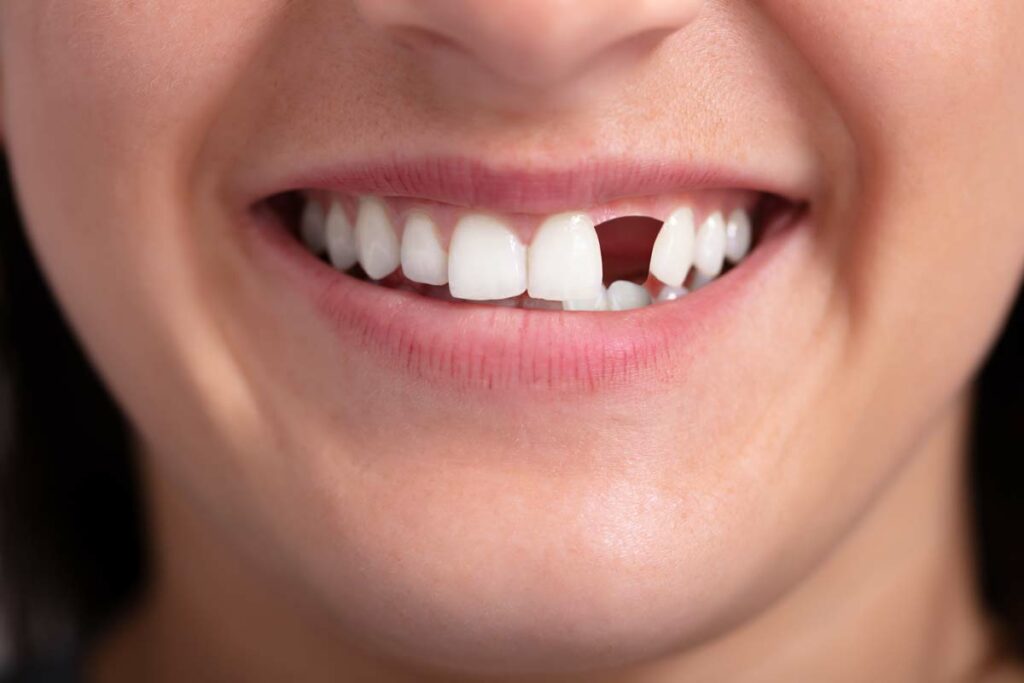Our teeth have many jobs to do. Chewing is a priority. Already in the oral cavity, food is processed, so their role in digestion is prominent; they also play an important role in the formation of sound (speech) and our teeth give us facial harmony.
There are several causes of tooth loss, the most common being tooth decay, which is the result of inadequate dental care.
Most of the adult population can say that they are missing at least one tooth.
But what happens if we don’t fill this tooth gap?
Even the loss of a single tooth can cause permanent and irreversible damage to our chewing organs, upsetting the balance needed for chewing, digestion and sound production. There is no aesthetic disadvantage in the absence of posterior teeth, but it is also very noticeable in the absence of anterior teeth.

Other consequences of tooth decay:
- intact teeth move towards the gap, they fall in
- the opposing teeth become longer, their roots lose stability
- the chewing force of the teeth is significantly reduced
- increased stress on the remaining teeth
- the edentulous jawbone is not subjected to chewing forces, so the bone begins to atrophy and thin
- the jaw joint also becomes inflamed
What can we do about it??
It is highly recommended to have missing teeth replaced.
There are several options for tooth replacement, you can have a bridge made to replace the missing tooth by filling in the missing teeth, or you can choose to have a dental implant, more correctly a dental implant or tooth replacement. Of course, detailed tests are required to plan a tooth replacement, so consult your dentist about your options.

